Lending Library - Adult Books
The BV Hospice has a library of books on the subjects of grief, loss, death, bereavement and hope. They range from children’s stories to many adult titles which offer thoughtful advice, meditations, prayers and so much information for the journey you or your family, friends, coworkers or neighbours may be on. Please see the list of available titles and their short summaries to give you an idea of what the book is all about and if it can help you.
The books are available for loan from the BV Hospice office at 3862D Broadway Avenue. To arrange pick up for books, please leave a message at 250.877.7451 [messages checked daily] or email us at

Books for Adults

Western attitudes toward death: from the Middle Ages to the present
Philippe Aries. 1974.
Reveals the change in Western man’s conception and acceptance of death as evidenced in customs, literature and art since medieval times.
Shelf location: 128 ARI
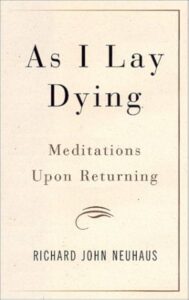
As I lay dying: meditations upon returning
Richard John Neuhaus. 2002.
Neuhaus, one of the foremost authorities on religion in the contemporary world, interweaves his own story of recovery from a near fatal ruptured tumour, with thoughtful inquiry, circling through philosophy, psychology, literature, theology, and his own experiences to create provocative meditations that explore the many aspects of dying.
Shelf location: 128.5 NEU
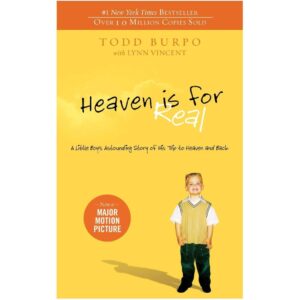
Heaven is for real: a little boy’s astounding story of his trip to heaven and back
Todd Burpo. 2010.
Presents the story of the four-year old son of a Nebraska pastor who during emergency surgery slips from consciousness and enters heaven.
Shelf location: 133.901 BUR
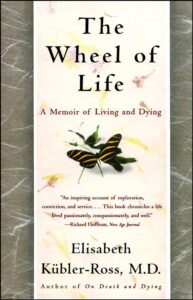
The wheel of life: a memoir of living and dying
Elizabeth Kubler-Ross. 1997.
A noted authority on death and dying offers a memoir of her lifetime of work, from war ravaged Poland to her seminars at the University of Chicago, and details her final belief that there is life after death. Through the tales of her life, she advises readers to live fully, love, and to remember that spiritual evolution is the ultimate goal here on earth.
Shelf location: 150.92 KUB
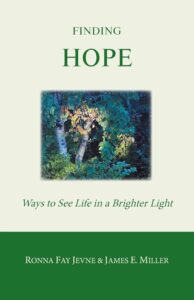
Finding hope: ways to see life in a brighter light
Ronna Fay Jevne & James E. Miller. 2020.
Finding Hope is useful for both the hopeful and the hope challenged. It plants the seeds of hopefulness even in those whose situations invite despair. With gentle invitations, thoughtful reflections, and compelling images, Jevne & Miller invite us to new understandings about hope including how to foster hope in our own lives and how to invite others to do the same. Every page offers relevant, achievable strategies for finding and practicing hope.
Shelf location: 152.42 JEV
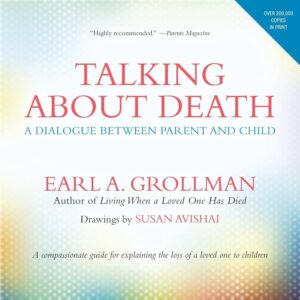
Talking about death: a dialogue between parent and child
Earl A. Grollman. 2011.
This guide to helping children cope with death includes an illustrated, read-along story, and discusses coping with a child’s ager, denial, or guilt, and how to discuss funerals, cemetaries and grief.
Shelf location: 155.9 GRO

The needs of the dying: a guide for bringing hope, comfort and love to life’s final chapter
David Kessler. 2007.
Examining the physical and emotional experiences of life challenging illnesses, Kesssler provides a vocabulary for family members and for the dying that allows them to communicate with doctors, with hospital staff, and with one another, and – at a time when the right words are exceedingly difficult to find – he helps readers find a way to say good-bye using comforting and touching stories
Shelf location: 155.93 KES
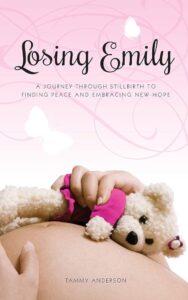
Losing Emily: a journey through stillbirth to finding peace and embracing new hope.
Tammy Anderson. 2010.
The author’s heartfelt, painful journey of surviving the stillbirth of her daughter at 37.5 weeks of pregnancy. Losing Emily reaches out to help grieving parents as they embark on their journey of healing, connecting to someone who has been there and understands the struggle and true depth of the unimaginable pain of losing a baby.
Shelf location: 155.937 AND
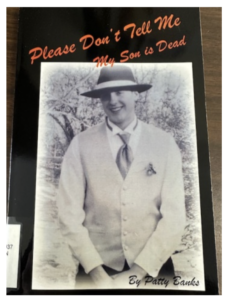
Please don’t tell me my son is dead.
Patty Banks. 20–.
Journal, poems, notes and letters in memory of Geoffrey Nelles Banks 1985-2002.
Shelf location: 155.937 BAN
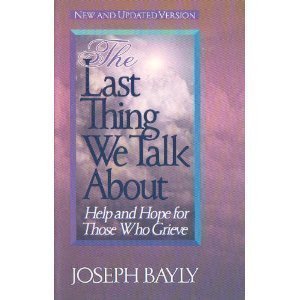
The last thing we talk about : help and hope for those who grieve
Joseph Bayly. 1973
Offers help and hope for the dying and the grieving. An excellent resource for pastors and those working with the terminally ill.
Shelf location: 155.937 BAY

Drawings from a dying child : insights into death from a Jungian perspective
Judi Bertoia. 1993.
This book concerns a young girl terminally ill with leukaemia. It describes drawings she made and shows how they reveal her inner experience, how she became fully aware that she was dying and even came to accept death. It provides new understanding of the experience of a dying child and suggests practical strategies for coping for families and caregivers
Shelf location: 155.937 BER
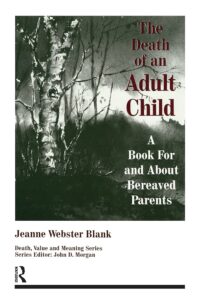
The death of an adult child: a book for and about bereaved parents
Jeanne Webster Blank. 1998.
This book addresses the phenomenon of parental grief in general, emphasizing the experiences of parents of children who died at ages eighteen and over. Based on the personal experiences of the author and sixty other bereaved parents who answered her questionnaire, it is a comfort and guide.
Shelf location: 155.937 BLA
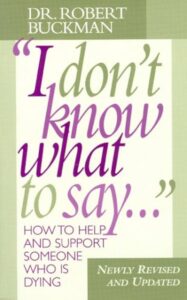
“I don’t know what to say…”: how to help and support someone who is dying
Robert Buckman. 2005
Even though its focus is on communicating with someone who is dying, its reach is far broader, extending to any intimate communication with anyone who is close. A sensitive and compassionate guide.
Shelf location: 155.937 BUC
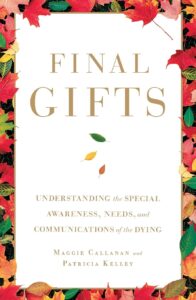
Final gifts: Understanding the special awareness, needs and communications of the dying
Maggie Callanan and Patricia Kelley. 1992. [6 copies]
In this moving and compassionate book, hospice nurses share their intimate experiences with patients at the end of life, drawn from more than twenty years experience tending the terminally ill.
Shelf location: 155.937 CAL
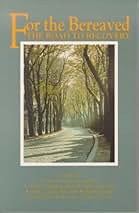
For the bereaved: the road to recovery
Austin H. Kutcher, ed. 1989.
Grief — Funerals — Thoughts about death — Recovery — Needs of the bereaved — Starting over — Financial pragmatics of bereavement
Shelf location: 155.937 FOR
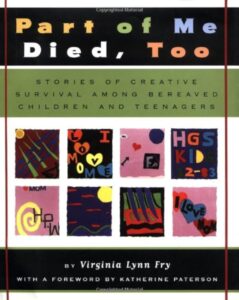
Part of me died too: Stories of creative survival among bereaved children and teenagers
Virginia Lynn Fry. 1995.
A moving and eloquent chronicle of eleven children, ranging from toddlers to teenagers, who have lost family or friends shows how drawing, music, and other rituals can help the grieving process, offering creative strategies for dealing with loss. Appropriate for all ages.
Shelf location: 155.937 FRY

When death speaks: listen, learn, and love
Stephen Lloyd Garrett. 2013.
Death has been pushed out of life and into a dark and lonely ‘morgue’. North Americans generally approach the topic of death with fear and denial in hand. When Death Speaks is all about changing the conversation to one of openness and inspiration. It approaches death with compassion, love and frankness, talking openly about death, planning for the inevitable, and supporting family and friends with tools and skills to begin a new type of conversation.
Shelf location: 155.937 GAR
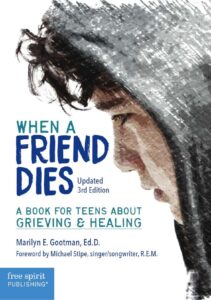
When a friend dies: a book for teens about grieving and healing
Marilyn E. Gootman. 2019.
The death of a friend is wrenching for any age but teenagers especially need help
coping. This sensitive book answers questions grieving teens often ask. The advice is gentle, non-preachy and compassionate. Includes new insights into losing a friend through violence.
Shelf location: 155.937 GOO
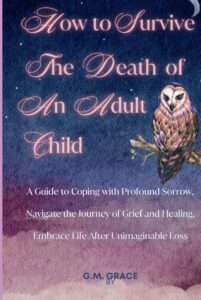
How to survive the death of an adult child: a guide to coping with profound sorrow, navigate the journey of grief and healing, embrace life after unimaginable loss
G.M. Grace. 2024.
Through heartfelt stories, expert insights, and healing strategies, this book provides a comprehensive roadmap to cope with profound sorrow and find a way to embrace life once again.
Shelf location: 155.937 GRA
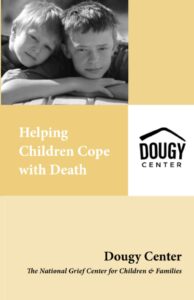
Helping Children Cope with Death
Dougy Center. 2014.
This guidebook offers a comprehensive, easy-to-read overview of how children grieve and strategies to support them. Based on Dougy Center’s work with thousands of grieving children and their families, you will learn how children understand death, how to talk with children about death at various developmental stages, how to be helpful, and when to seek outside help. This book is useful for parents, teachers, helping professionals, and anyone trying to support a grieving child.
Shelf location: 155.937 HEL
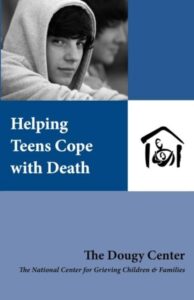
Helping Teens Cope with Death
Dougy Center. 2011.
This practical guide covers the unique grief responses of teenagers and the specific challenges they face when grieving a death. You will learn how death impacts teenagers and ways that you can help them. The book also offers advice from parents and caregivers of bereaved teens on how to support adolescents and how to determine when professional help is needed.
Shelf location: 155.937 HEL
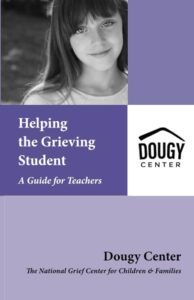
Helping the grieving student: a guide for teachers
Dougy Center. 2011.
In the United States, one in 12 children will have a parent or sibling die before they turn 18 years old. Therefore at some point, every teacher will encounter a student who has been affected by a death. This guidebook is an essential resource for elementary, middle and high school teachers, offering practical tips and information for how to respond to a death.
Shelf location: 155.937 HEL
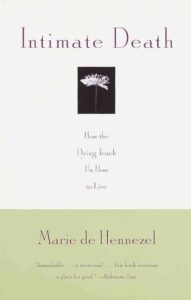
Intimate death: how the dying teach us how to live
Marie de Hennezel. 1997.
A psychologist who works with the dying and their loved ones reveals how to bring both peace and dignity to death, explaining how to find the strength to confront death in ourselves and others and how to find the strength to live each day fully with serenity.
Shelf location: 155.937 HEN
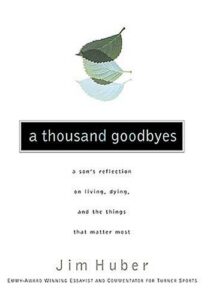
A thousand goodbyes: a son’s reflection on living, dying, and the things that matter most
Jim Huber. 2001.
In a book celebrating Christian faith and courage, a sports journalist shares recollections from the precious last months he spent with his late father, recalls stories of athletes who have faced overwhelming odds or triumphed over personal tragedies and offers spiritual insight into the lives and deaths of some noted sports figures.
Shelf location: 155.937 HUB
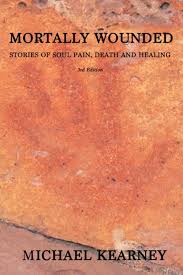
Mortally wounded: stories of soul pain, death and healing
Michael Kearney and Dame Cicely Saunders. 2021.
What makes for a good death? Dr. Michael Kearney reflects upon his experiences working with the dying and shows us that it is possible to learn to die well, overcoming our fears and soul pain and accepting death as an integral part of life. Believing that the root of the pain we face when dying is often a personal and cultural disconnection from soul, Dr. Kearney advocates a personal quest inward—using dream analysis and visualization exercises, combined with mythological insights, can help us to re engage with this deepest part of our being enabling us to find our “own way through the prison of soul pain to a place of greater wholeness, a new depth of living, and a falling away from fear.
Shelf location: 155.937 KEA
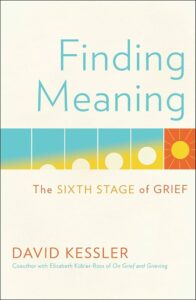
Finding meaning: the sixth stage of grief
David Kessler. 2019.
Journey beyond the classic five stages of grief to discover a critical sixth stage: meaning. Kessler argues that it’s finding meaning beyond the stages of grief most of us are familiar with that can transform grief into a more peaceful and hopeful experience. He gives readers a roadmap to remembering those who have died and shows us how to move forward in a way that honours our loved ones.
Shelf location: 155.937 KES
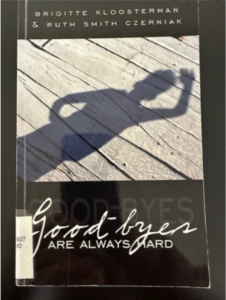
Good-byes are always hard
Brigitte Kloosterman & Ruth Czerniak. 2007.
Brigitte Kloosterman tragically lost both parents and her two children in separate incidents in less than 10 years. This is her story of joy, grief and survival with the help of family, friends and her Christian faith.
Shelf location: 155.937 KLO
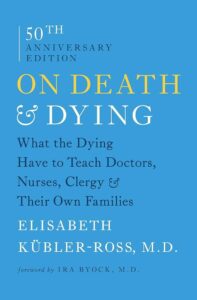
On death and dying: what the dying have to teach doctors, nurses, clergy and their own families
Elisabeth Kubler-Ross. 2014.
This book introduced the now-famous idea of the five stages of dealing with death: denial and isolation, anger, bargaining, depression and acceptance. It gives the reader a better understanding of how imminent death affects the patient, the professionals and the family and brings hope to all involved.
Shelf location: 155.937 KUB
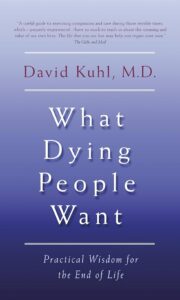
What dying people want: a practical wisdom for the end of life
David Kuhl. 2003. [ 2 copies]
Internationally renowned palliative care physician offers guidance on living with a terminal illness over a long period of time. It offers guidance, solace and helpful strategies for people who are terminally ill, their families and caregivers, presenting ways of addressing the pain, of finding new life in the process of dying and of understanding the inner reality of living with a terminal illness. He makes the provocative case that insensitive communication by doctors creates more suffering and provides ways of speaking about difficult topics with physicians, family members, friends and those who have a terminal illness.
Shelf location: 155.937 KUH
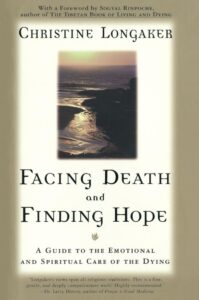
Facing death and finding hope: a guide to the emotional and spiritual care of the dying
Christine Longaker. 1997.
Clear and compassionate, the author identifies the typical fears and struggles experienced by the dying and their families. The core of this book is presented in “Four Tasks of Living and Dying,” using the Tibetan Buddhist perspective on death to provide a new framework
of meaning. A book of great depth and grace.
Shelf location: 155.937 LON
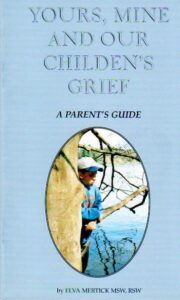
Yours, mine and our children’s grief: a parent’s guide
Elva Mertick. 1991.
“Because of their lack of knowledge and life experiences, children have no idea of what to expect of death and grief. Our aim is to give children clear, realistic
information that they may deal with their loss.”
Shelf location: 155.937 MER
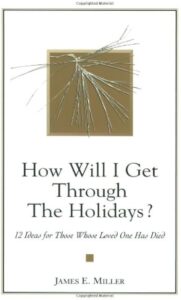
How will I get through the holidays? 12 ideas for those whose loved one has died
James E. Miller. 1996. [2 copies]
The author has gathered thoughtful quotes and draws on experience as a counselor and pastor to offer practical, heartfelt suggestions on dealing with grief – especially at the holidays.
Shelf location: 155.937 MIL

What will help me?/How can I help? 12 things to remember when you have suffered a loss/12 things to do when someone you know suffers a loss
James E. Miller. 2014.
Held one way, this book is for those who are grieving. In 12 brief, easy-to-read chapters, to offers helpful suggestions for how one can move through one’s grief in a healthy, healing way. Held the opposite way (so the back cover becomes the front cover), it’s a book for those who want to help someone who is grieving. Its 12 succinct chapters offer positive, practical advice.
Shelf location: 155.937 MIL
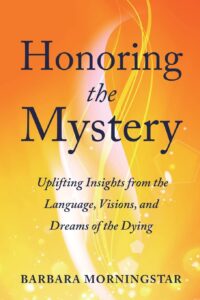
Honoring the mystery: uplifting insights from the language, visions, and dreams of the dying
Barbara Morningstar. 2018.
A collection of inspiring and insightful stories that encourage the reader to adapt the attitude of an explorer venturing into unknown realms while listening and absorbing all that is being shared by the dying and bereaved. The author has lived at the frontier of death both personally—through the death of her husband to cancer – and professionally in the hospice field for more than twenty years.
Shelf location: 155.937 MOR
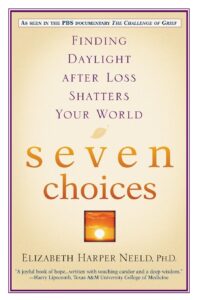
Seven choices: finding daylight after loss shatters your world
Elizabeth Harper Neeld. 2003.
Outlines seven phases of grief after loss, counselling readers on how to move through each phase in order to become stronger and more balanced, in a guide that shares the author’s own experiences and dozens of case stories.
Shelf location: 155.937 NEE
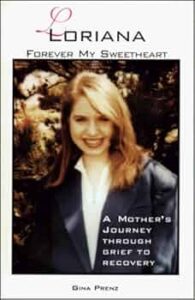
Loriana, forever my sweetheart
Gina Prenz. 1999.
A story of a mother’s journey through grief to recovery after the death of her daughter.
Shelf location: 155.937 PRE
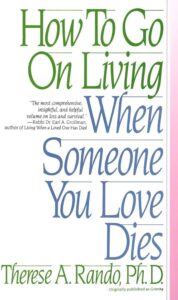
How to go on living when someone you love dies
Therese A Rando. 1991. [5 copies]
A gentle, comprehensive guide through the painful but necessary process of grieving and finding the best way for yourself. Whether the death was sudden or expected, from
accident, illness, suicide, homicide, or natural causes, Dr. Rando, bereavement specialist, will help you learn to: understand and resolve your grief, talk to children about death, resolve unfinished business, take care of yourself, accept the help and support of others, get through holidays and other difficult times of the year, plan funerals and personal bereavement rituals. There is no way around the pain of loss, but there is a way through it to a new life without forgetting the treasured past.
Shelf location: 155.937 RAN
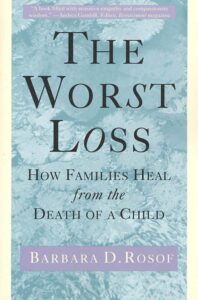
The worst loss: how families heal from the death of a child
Barbara D. Rosof. 1994.
An experienced child psychotherapist offers compassionate advice for families who have suffered the death of a child, helping them
understand their reactions and showing how to help surviving children cope with the loss.
Shelf location: 155.937 ROS
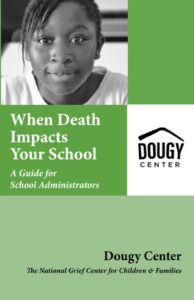
When death impacts your school: a guide for school administrators
Dougy Center. 2003
This guidebook includes suggestions for how schools can help students—by addressing concerns, organizing memorials and offering support. It also includes instructions for developing a school intervention plan after a death, how to address issues related to suicide and violence and how to know when outside help is needed.
Shelf location: 155.937 WHE
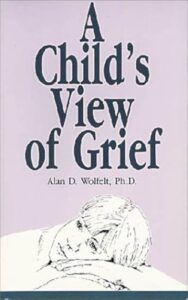
A child’s view of grief: a guide for caring adults
Alan Wolfelt. 1990.
This concise resource for parents of grieving kids explores several key principles for helping children cope with grief and offers ways to create an emotional environment filled with love and acceptance. It answers common questions such as What should I say to children when someone they love dies? Should young children attend funerals? This guide also identifies and explains typical behaviors, thoughts, and feelings of grieving kids and offers adults tips for responding to them.
Shelf location: 155.937 WOL
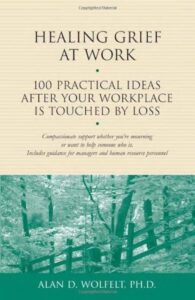
Healing grief at work: 100 practical ideas after your workplace is touched by loss
Alan D. Wolfelt. 2005
Explores what happens when grief and the workplace meet, and the drastic effects of grieving on employees, their performance, and the overall workplace environment. Touching on the different kinds of grief workers can experience, such as death, divorce, and layoffs, the effective ways to channel grief during the workday, how to support coworkers who mourn, participation in group memorials, and negotiating appropriate bereavement leave, with ideas for the mourner and the mourner’s coworkers. A special introduction for employers, owners, managers, and human resource personnel addresses the economic impact of grief and provides practical and cost effective ideas for maintaining morale and creating a productive yet compassionate work environment.
Shelf location: 155.937 WOL
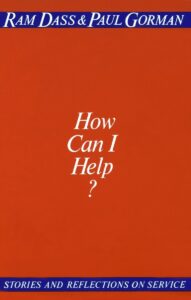
How can I help? Stories and reflections on service
Ram Dass & Paul Gorman. 1988.
A practical helper’s companion providing support and inspiration in one’s efforts as members of the helping professions, as volunteers, as community activists, or simply as friends and family trying to meet each other’s needs. Includes deeply moving personal accounts.
Shelf location: 158 DAS
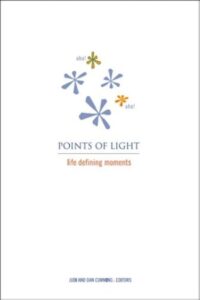
Points of light: life defining moments
Judi and Dan Cumming, ed. 2004.
This inspirational anthology bravely and generously shares the “Aha!” life altering
experiences of regular people. Readers may be surprised to meet their parents, friends and neighbours here, even themselves.
Shelf location: 158.1 POI
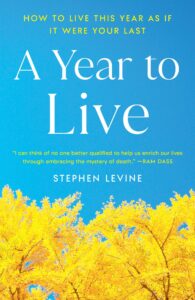
A year to live: how to live this year as if it were your last
Stephen Levine. 1997.
Inspired by Socrates, the author shares his experiences during a year of living as if it were his last, and offers a year long program with seven different exercises and meditations to help readers become more deeply engaged in life.
Shelf location: 170.44 LEV
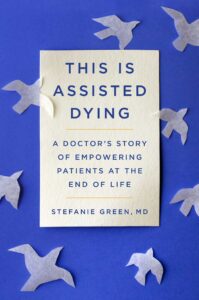
This is assisted dying: a doctor’s story of empowering patients at the end of life
Stefanie Green. 2022.
Deeply authentic and powerfully emotional, This Is Assisted Dying contextualizes the myriad personal, professional, and practical issues surrounding assisted dying by bringing
readers into the room with Dr. Green, sharing the voices of her patients, her colleagues, and her
own narrative. As our population confronts issues of wellness, integrity, agency and community,
and how to live a connected, meaningful life, this progressive and compassionate book by a
physician at the forefront of medically assisted dying offers comfort and potential relief.
Shelf location: 179.1 GRE
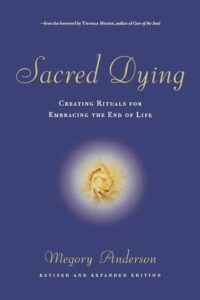
Sacred dying: creating rituals for embracing the end of life
Megory Anderson. 2003.
Anderson’s testimonial and handbook for creating a dignified, peaceful and more sacred end to life. It includes a section with many prayers and poems from various traditions. She discusses all aspects of final transition, including how to help a dying person put “unfinished business” to rest; using massage to help the dying let go of his or her body; and how to use music to help the dying focus on specific times, places, or events as well as a chapter on what can be done after death to help move the soul along.
Shelf location: 203.8 AND
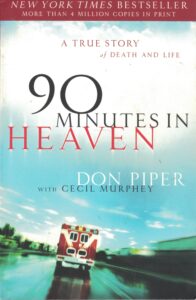
90 Minutes in heaven: a true story of death and life
Don Piper. 2004
Recounts the experience of Baptist minister Don Piper, who was pronounced dead at the scene of a car accident and experienced the glories of heaven for ninety minutes, but who miraculously came back to life, where he endured a long and painful recovery.
Shelf location: 231.7 PIP
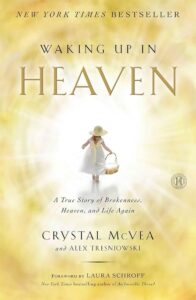
Waking up in Heaven: a true story of brokenness, Heaven and life again
Crystal McVea. 2013.
A remarkable and inspirational memoir about one woman’s near-death experience, who was dramatically changed by the nine minutes she spent in heaven.
Shelf location: 236.2 MCV
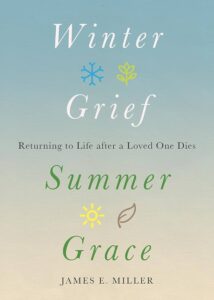
Winter grief, summer grace : returning to life after a loved one dies
James E. Miller. 2024.
This compilation of photographs, meditations, poetry, scripture, spiritual exercises and quotations will be a helpful companion or tool for those mourning the anticipated death of a parent or the peaceful passing of a spouse or old friend.
Shelf location: 242 MIL
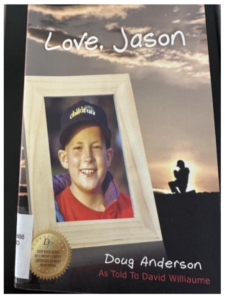
Love, Jason
Doug Anderson and David Williaume. 2013.
A bittersweet story of the Anderson family from Witset, whose thirteen year old son, Jason, endured a five-year battle with Ewing’s sarcoma. Jason died but never lost his faith in God.
Shelf location: 248.866 AND
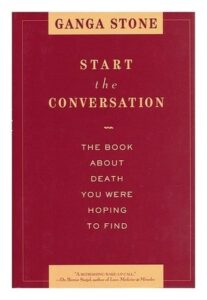
Start the conversation: the book about death you were hoping to find
Ganga Stone. 1996.
Combining Eastern spiritualism with Western science, the founder of the national charity God’s Love We Delivery creates an inspiring, practical and hopeful approach to facing death. Uplifting without being sentimental, Stone explores such important issues as fear and grief, near-death experiences, survival and preparation for death.
Shelf location: 291.23 STO
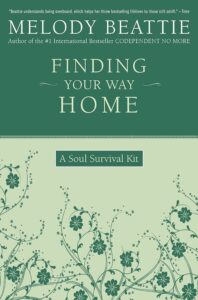
Finding your way home: a soul survival kit
Melody Beattie. 1998.
What does it mean to feel at home, truly present with oneself, comfortable with choices and alive to the possibilities of conscious change? Through true stories and take-action exercises, including journaling, visualizations, affirmations, meditations and prayers, Beattie
provides essential tools to help discover one’s own sense of home.
Shelf location: 291.44 BEA
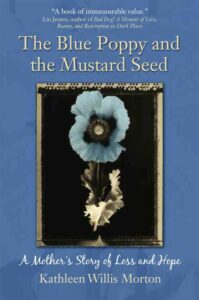
The blue poppy and the mustard seed: a mother’s story of loss and hope
Kathleen Willis Morton. 2008.
After the death of her six-week-old son, Liam, Katie Willis Morton embarked on a courageous search for solace and understanding. Interweaving simple rituals like children’s
baths and picnics, and birth and death rites – with her own recovery and growth, she discovers
that the pain she has experienced is both unavoidable and necessary, a pivotal part of the
process of healing that can lead to “a victorious kind of joy, of acceptance.” In discovering herself, Morton speaks to readers suffering similar tragedies, and indeed to all of us, in an intimate and inspiring story about enduring world-shattering pain and coming out whole.
Shelf location: 294.3 WIL
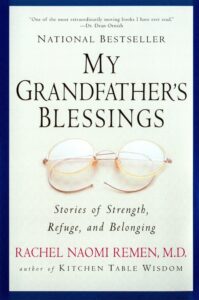
My grandfather’s blessings: stories of strength, refuge, and belonging
Rachel Naomi Remen, M.D. 2000.
The author, a cancer physician and master storyteller, shares the wisdom of her grandfather –an orthodox rabbi and scholar of the kabbalah—about the secret of life, emphasizing that the love and blessings given to others can heal our loneliness, unhappiness, and all our wounds. Inspiring stories to remind us of the power of our kindness and the joy of being alive.
Shelf location: 296.72 REM
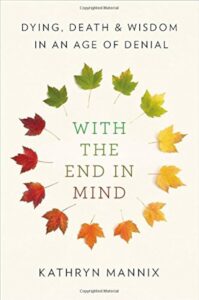
With the end in mind: dying, death, and wisdom in an age of denial
Kathryn Mannix. 2018.
A palliative care physician draws on stories from her own practice to explain how to enable a gentle and peaceful death and how modern medicine, augmented by traditional palliative approaches, can restore dignity, humanity, and meaning to the end of life.
Shelf location: 304.64 MAN
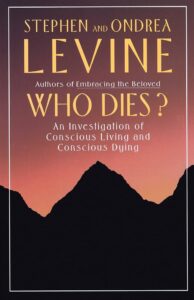
Who dies? An investigation of conscious living and conscious dying
Stephen Levine. 1982.
Examines the modern fear of death and discusses how meditation can be used to overcome this fear, deal with grief and improve our consciousness.
Shelf location: 306 LEV
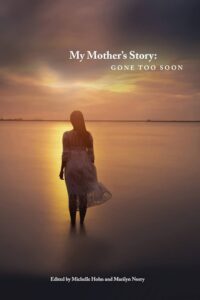
My mother’s story: gone too soon
Edited by Michelle Hohn & Marilyn Norry. 2022.
A courageous collection written by adults who experienced the loss of their mother in childhood or adolescence. Contributors traverse difficult emotional
terrain together to definitively answer the question, “Who was my mother?” Readers may find some experiences and specific topics difficult.
Shelf location: 306.8743 MYM
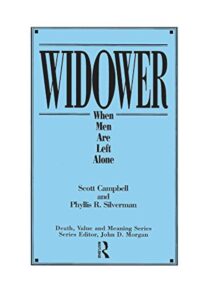
Widower: when men are left alone
Scott Campbell. 1987.
Explores the grief process as men experience it. The book contains the oral histories of twenty men, ranging in age from 30 to 94, who have lost their wives to a range of causes including cancer, alcohol, murder, and suicide.
Shelf location: 306.88 CAM
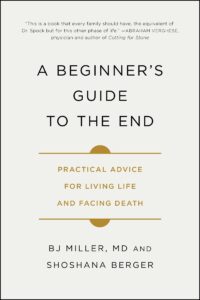
A beginner’s guide to the end: practical advice for living life and facing death
Bruce Miller. 2019.
An honest, surprising, and detail-oriented practical guide to preparing for death, from how to talk to your children about your will, to how to hack the hospice system, how to shut down a loved one’s social media accounts, clean out the house and write a great eulogy.
Shelf location: 306.9 MIL
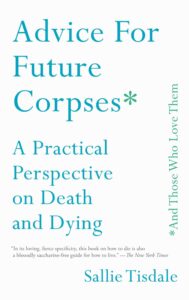
Advice for future corpses and those who love them: a practical perspective on death and dying
Sallie Tisdale. 2018.
A straightforward, wise, and humorous narrative field guide for both the dying and those who love them, based on the deaths Tisdale, a palliative care nurse, has witnessed in her work and life, as well as stories from cultures, traditions, and literature around the world. It
includes exercises designed to make you think differently about the inevitable.
Shelf location: 306.9 TIS

Some become flowers: living with dying at home
Sharon Brown. 1993.
When Sharon Brown’s mother became terminally ill with bone cancer, she brought her mother home to live with her family. Through the terrible and wonderful weeks, with loving support from her husband, trusted professionals and a close-knit community of friends and family, she helped her mother die with dignity. Useful for anyone who will ever care for a dying loved one and for any front-line palliative care worker.
Shelf location: 362.1 BRO
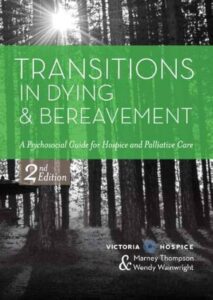
Transitions in dying and bereavement: a psychosocial guide for hospice palliative care
Marney Thompson, Wendy Wainright and Victoria Hospice Society. 2nd ed. 2017.
Updated edition. Describes the transitions that dying people, their families, and their caregivers move through during the process from diagnosis to bereavement, and outlines interventions that professionals can use to ease confusion and stress experienced by clients and families. Activities, exercises, personal essays, poetry, and illustrations put a human face on the hospice experience.
Shelf location: 362.1 CAI
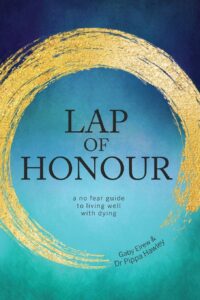
Lap of honour: a no fear guide to living well with dying
Gaby Eirew and Dr. Pippa Hawley. 2019.
Aware that you’re dying? Are you wondering what happens next? Written by a palliative care physician and a counselor with many years’ experience working with families coping with dying it is packed with practical advice to help address the difficult questions.
Shelf location: 362.175 EIR
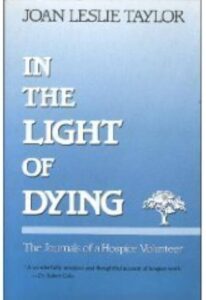
In the light of dying: the journals of a hospice volunteer
Joan L. Taylor. 1989.
Diary of volunteer workers in US hospitals. Hospice care.
Shelf location: 362.175 TAY
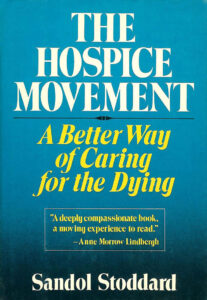
The hospice movement: a better way of caring for the dying
Sandol Stoddard. 1992.
The one review on Amazon said this book was not relevant and too old now but would have historical information.
Shelf location: 362.175 STO
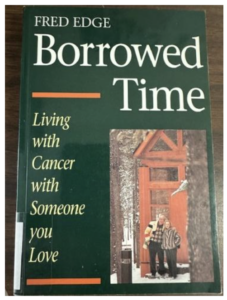
Borrowed time: living with cancer with someone you love
Fred Edge. 1995.
Cancer patients home care and family relationships.Cancer treatments – popular works.
Shelf location: 362.196 EDG
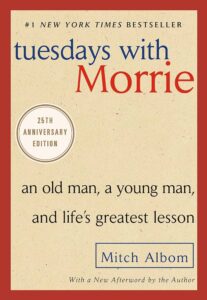
Tuesdays with Morrie: an old man, a young man, and life’s greatest lesson
Mitch Albom 1997.
Albom rediscovered his old professor, Morrie Schwartz, in the last months of the older man’s life. Their rekindled relationship turned into one final ‘class’: lessons in how to live.
Shelf location: 378.12 ALB
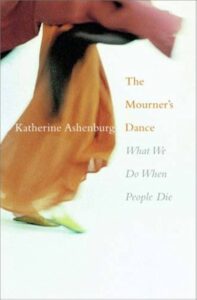
The mourner’s dance: what we do when people die
Katherine Ashenburg. 2009
Uncovers the psychological wisdom embedded in mourning customs ancient and new, and the value of ritual in restoring a community unraveled by loss. It is about how, in the wake of death, we go on living.
Shelf location: 393.9 ASH

Stay, breathe with me: the gift of compassionate medicine
Helen Allison. 2016.
A Palliative Care Book of the Month: IAHPC (International Association for Hospice
and Palliative Care). From a medical insider comes a plea to renew medicine’s mandate to relieve suffering. The philosophy and practice of palliative care shows how this is possible by easing pain, by embracing the human side of illness, by inviting patients to be full participants in their care, and by incorporating the wisdom of these injured storytellers to guide healing hands. Informed by
the voices of the seriously ill, their families, and the lifelong experience of a palliative care nurse and medical social worker, Stay, Breathe with Me, illuminates the power of the art of care and the need to bring heart and compassion back into health care. Written for both medical professionals and general readers alike.
Shelf location: 610.69 ALL
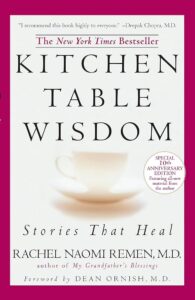
Kitchen table wisdom: stories that heal
Rachel N. Remen. 1997.
The co-founder of the Commonweal Cancer Help Program discusses the problem of isolation and disconnection in American society and sets forth her vision of how life should be lived and the spiritual issues of healing – suffering, love, faith, meaning, courage and miracles.
Shelf location: 610.92 REM
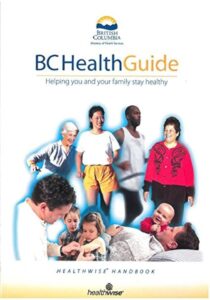
BC health guide: helping you & your family stay healthy
RDonald Kemper and others. 2005.
Health handbook with medical advice on self-care, preventative medicine, and tips on when to reach out for professional care.
Shelf location: 613.024 KEM
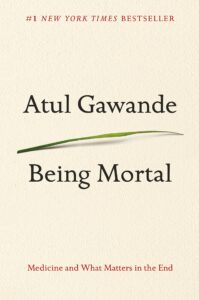
Being mortal: medicine and what matters in the end
Atul Gawande. 2014.
Gawande, a practicing surgeon, addresses his profession’s ultimate limitation, arguing that quality of life is the desired goal for patients and families of the terminally ill.
Shelf location: 616.029 GAW
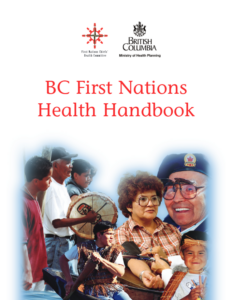
BC First Nations health handbook: a companion document to the BC health guide
First Nations Chiefs’ Health Committee (BC). 2004.
Popular medicine handbook. A joint partnership between First Nations Chiefs’ Health Committee and British Columbia, Ministry of Health Plannin. G.
Shelf location: 613.024 BRI

When breath becomes air
Paul Kalanithi. 2016.
Approaches the questions raised by facing mortality from the dual perspective of the neurosurgeon who spent a decade meeting patients in the twilight between life and death, and the terminally ill patient who suddenly found himself living in that liminality.
Shelf location: 616.99 KAL
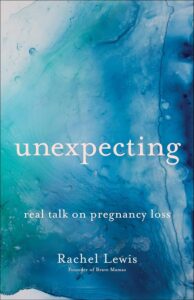
Unexpecting: real talk on pregnancy loss
Rachel Lewis. 2021.
The author, a bereaved mom, walks through the unique grief of baby loss. The book is a safe place to navigate what comes next, such as: coping with a postpartum body without a baby in your arms, facing social isolation and grief invalidation, wrestling with faith, learning to move forward and creating a legacy for your child.
Shelf location: 618.39 LEW
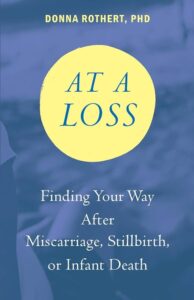
At a loss: Finding your way after miscarriage, stillbirth, or infant death
Donna Rothert. 2019.
Written by a psychologist who experienced two pregnancy losses herself, At a Loss offers thirty essays on the thoughts, feelings, and struggles that come along with losing a pregnancy or baby. Whether you are early in a crisis of grief or exploring the loss years afterward, you will find self-compassion, healing, and new ways to make meaning of your loss
Shelf location: 618.39 ROT
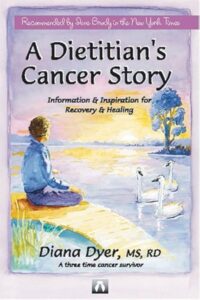
A dietitian’s cancer story: information & inspiration for recovery & healing from a 3-time cancer survivor
Diana Dyer. 2000.
This would be a very helpful book for anyone who wants to improve her or his nutrition, regardless of whether they have cancer or not and she acknowledges that research on nutrition and cancer is incomplete, but then goes on to discuss how to include foods that have been shown to be possibly helpful in preventing cancer.
Shelf location: 641.5 DYE
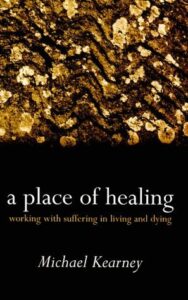
A place of healing: working with suffering in living and dying
Michael Kearney. 2000.
Palliative care traditionally draws on the successes of the Western medical model in developing innovative means of controlling pain where cure is not possible. The author argues
that there are limitations, in particular, the model itself is limited in its ability to alleviate the psychological and spiritual suffering that often accompanies terminal illness. He proposes a new model which draws on best practice from the Western medical model and the traditions of ancient rites of Asklepian healing.
Shelf location: 726.8 KEA
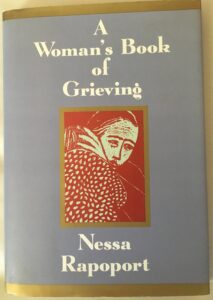
A woman’s book of grieving
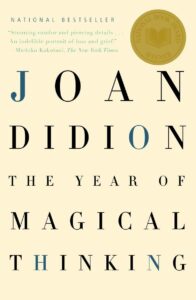
The year of magical thinking
Joan Didion. 2005.
An autobiographical portrait of marriage and motherhood and the author’s struggle to come to terms with life and death, illness, sanity, personal upheaval and grief after she lost her husband and daughter within a few months of each other.
Shelf location: 813.54 DID
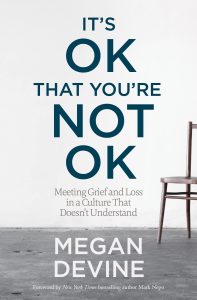
It’s OK that you’re NOT OK: meeting grief and loss in a culture that doesn’t understand
Megan Devine. 2017.
Megan Devine offers a profound new approach to both the experience of grief and the way we help others who have endured tragedy. Having experienced grief from both sides — as both a therapist and as a woman who witnessed the accidental drowning of her beloved partner — Megan writes with deep insight about the unspoken truths of loss, love, and healing. She debunks the culturally prescribed goal of returning to a normal “happy” life, replacing it with a far healthier middle path, one that invites us to build a life alongside grief rather than seeking to overcome it. Through stories, research, life tips, and creative and mindfulness-based practices, she offers a unique guide through an experience we all must face – in our personal lives, in the lives of those we love, and in the wider world. It is a book for grieving people, those who love them, and all those seeking to love themselves – and each other – better.
Shelf location: 155.93 DEV
